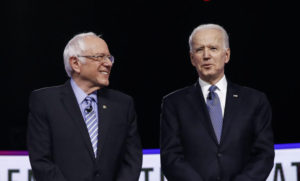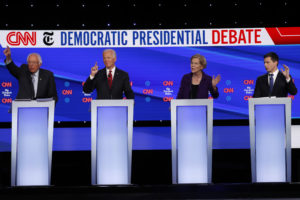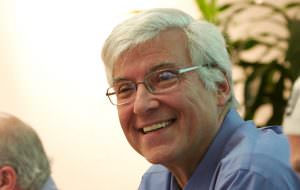Why We Loved David Broder
I loved David Broder from the moment I met him, and there are scores of reporters who felt that way.I loved David Broder from the moment I met him, and there are scores of reporters who felt that way.
That first encounter came when I was 23 in 1976, in the weeks before the New Hampshire primary. I was then working for The New York Times and found myself in a pressroom, during a debate as I recall. And here was Dave Broder, one of the most famous and accomplished political journalists in the United States, bounding in after doing some reporting — he was always reporting — and handing his notes over to a younger scribe with the words, “Here, you can use these.” The guy who could have been the Big Foot was happy to be the legman for a colleague. It’s the sort of generosity he showed again and again and again.
Yes, he was a reporter’s reporter, but also a citizen’s reporter and a voter’s reporter. It wasn’t just that he knew every governor and every state party chair in the country — and some enormous proportion of county commissioners, state legislators and city council members, too. He also felt compelled, constantly, to go door-to-door to talk to fellow citizens. They were subjects for Broder, not objects. He wasn’t trolling for quotes. He truly wanted to know and understand how people thought and felt.
One of the best journalistic projects I ever worked on was the result of a David Broder brainstorm. In 1991, David felt that we in Washington didn’t fully appreciate what was happening in the country, that despite President George H. W. Bush’s relatively healthy approval ratings at the time, there was rebellion roiling under the surface.
So he organized an inquest into the national mood, and we fanned out in groups of two to San Bernardino, Calif.; Fort Worth, Texas; Kenosha, Wis.; Dover, Del.; and Charlotte, N.C. I drew Kenosha with my colleague Maralee Schwartz. We all spent a week going door-to-door and to community and city council meetings, to churches and shopping centers. We interviewed politicians and union leaders and local business folks, searching out the views of citizens of every station and class. I still have a soft spot for Kenosha from that experience.
When we all got back, we compared notes (there were lots of notes) and realized there was far more discontent in the country than anybody thought. We wrote a series — and, again, it was really all David’s inspiration — that pointed to disaffection with President Bush at a moment when he was soaring in the polls and the articles could be read (I looked at them again recently) as predicting the rise of something like the Ross Perot movement before anybody saw the potential for such a movement. You could say the series was prophetic. David would insist it was simply thorough reporting.
David was known for his love for governors, and I think he liked governors for the best reasons: They were — at least for most of his life as a reporter — problem solvers, not ideologues. To the extent that David had an ideology, it was a bias toward nonpartisan problem-solving. It was why, I think, he was so interested in moderate Republicans in the 1960s, when he wrote what remains a fine book, “The Republican Establishment,” with my Brookings Institution colleague Steve Hess.
Thus the Great Broder Paradox: Later in life, he was seen as a pillar of the Washington journalistic Establishment, “the dean” of the D.C. press corps. Yet David was one of the least Washington-Establishmentarian people you could ever meet. He never stopped being a man of the Midwest. He was impatient with the mores of the stuffy side of Washington. This came out especially in the annual columns he wrote about his beloved Beaver Island vacation spot in Michigan.
Here’s how he began his 1982 Beaver Island column, published on July 25: “I take a lot of abuse from colleagues back in Washington who spend their summer vacations at fashionable places on Cape Cod, Martha’s Vineyard or the coast of Maine. They insist that because they have cocktails with an undersecretary and cookouts with an ambassador, they are more ‘with it’ than we are on this never-heard-of-it island at the top of Lake Michigan. They are wrong, of course. I have known for more than 30 years that Beaver Island is the center of the real world.”
David was a small-d democrat to the depths of his soul. He was a giver and a sharer, a listener and a friend.
E.J. Dionne’s e-mail address is ejdionne(at)washpost.com.
© 2011, Washington Post Writers Group
Your support matters…Independent journalism is under threat and overshadowed by heavily funded mainstream media.
You can help level the playing field. Become a member.
Your tax-deductible contribution keeps us digging beneath the headlines to give you thought-provoking, investigative reporting and analysis that unearths what's really happening- without compromise.
Give today to support our courageous, independent journalists.






You need to be a supporter to comment.
There are currently no responses to this article.
Be the first to respond.